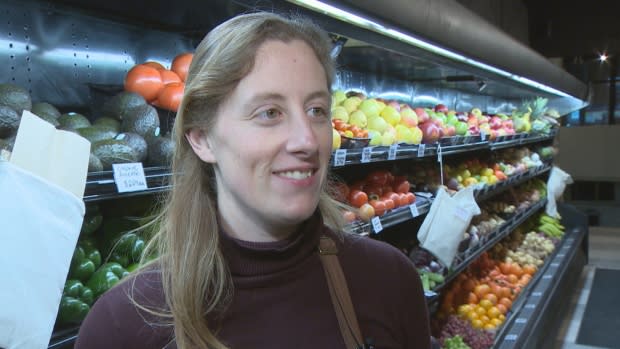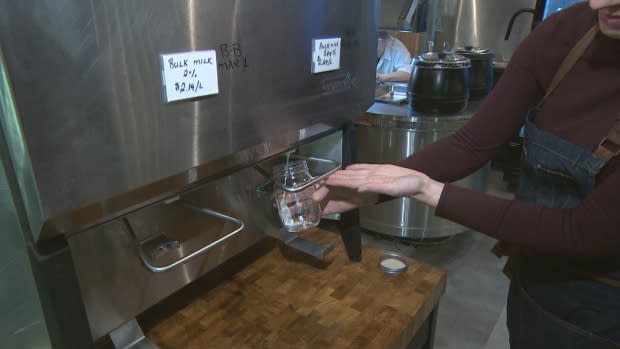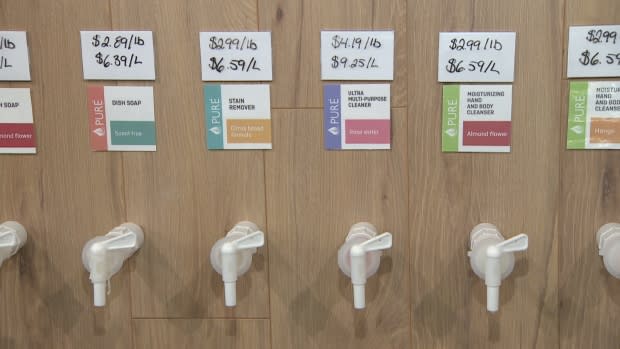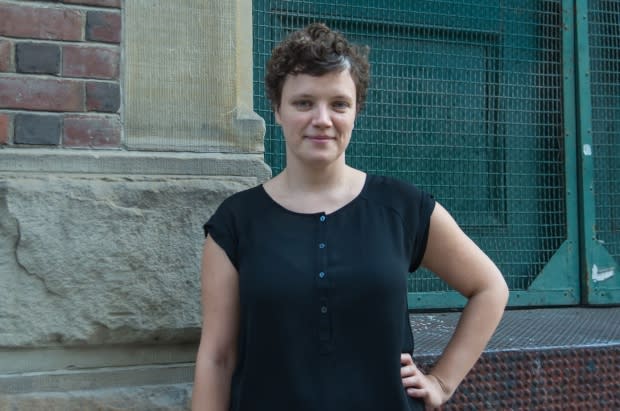Zero-waste grocery store aims to dump all single-use plastics
At a new Toronto grocery store, if you want to buy milk, it's BYOB. That's bring your own bottle.
You then fill up a glass bottle or jar from a large stainless steel dispenser. They charge bulk-style, so if you only take a cup's worth, that's all you'll be charged. Plus you weigh your empty bottle first, so you won't be charged anything extra for the weight of your glass jar.
"We are working actively to not have any single-use plastic in the environment at all," said Michelle Genttner, co-owner of Unboxed at 1263 Dundas St. W.
"And if there's no packaging, that's even better."
That means don't bother looking for the roll of plastic bags in the fruit and vegetable aisle. Instead, customers bring their own re-useable bags or they can buy cotton ones at the store.

The store is set to have its official grand opening in March. The owners say they launched the venture because they're frustrated at the amount of waste they see all around them, including in the restaurant industry where they used to work.

The store also attempts to cut out food waste, taking produce and meat from their butcher counter and transforming them into dishes at the on-site cafe.
Genttner hopes the lack of packaging will result in customers throwing out less food.
Buy a dozen eggs... or just 4 or 5
"You can purchase exactly what you need," she explained, even with foods you may not think could be bought in smaller quantities.
"If you know that you're not going to go through a dozen eggs before they go bad, you can buy four."
Environmentalists are impressed with these types of stores but are also aware that so far, they're not having a large impact, with multiple layers of packaging common for wrapping foods at large grocery chains.

"A lot of the bigger stores and bigger companies just aren't doing enough," said Emily Alfred, the Toronto Environmental Alliance's waste campaigner.
"We need regulations and we need other ways to compel them to change their behaviour."
Alfred hopes one regulation picked up by both the European Union and British Columbia will come to Ontario — a requirement that companies, not municipalities, bear the cost of recycling the materials they produce.
"When they make a choice about using too much packaging or a type of packaging that's hard to recycle, it's their job to make sure that that gets recycled," she said.

The City of Toronto has also been holding consultations on the use of single-use plastics and Alfred believes one solution is a word some people don't like: bans.
"Vancouver is talking about banning styrofoam and banning single-use coffee cups," Alfred said, adding that some places have banned plastic straws and bags.
"We're really optimistic that the trend around the world is in using bans and I think Toronto's ready for it."
Back at Unboxed, Sarah Van Exen shopped during the store's soft launch.
"We've been trying to reduce our plastic waste for a while," she said, often going to bulk food stores to do that.
She stood at the check-out with her young son Tom, who explained he doesn't buy granola bars with their individual wrappers.
"He's aware of climate change and he knows that food waste is a big part of what's contributing to that," Van Exen explained.
"Kids these days know that plastics are going to the landfill."

